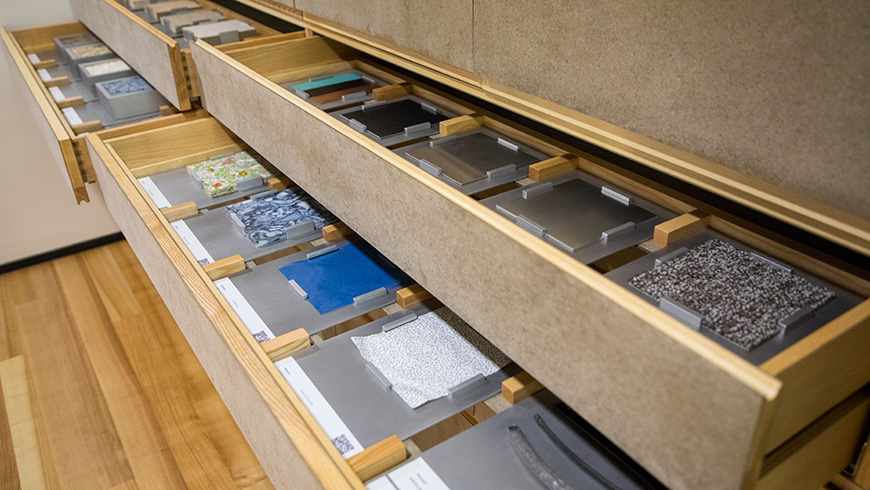First virtual CE2 Lab
Towards closed loops
The circular economy is gaining a foothold in more and more areas: Some have already established business models, in others it is only visible in visionary pioneering projects. Where are the hurdles to a functioning circular economy, and how can they be overcome? Questions like those were discussed among the participants of the CE2 Lab on 23 June 2020 organized by the Swiss Economic Forum, Empa and the Swiss National Research Program "Sustainable Economy" (NRP 73).

"Actually I would have liked to welcome you at Empa," said Roland Hischier at the beginning of his talk. Instead, the head of the Empa research group "Advancing Life Cycle Assessment" spoke to the 40 participants of the CE2 Lab last Tuesday via video conference. COVID-19 caused the event to be moved into virtual space. Nevertheless, a lively discussion developed between participants – most of them experts who deal with sustainability issues or circular economy by profession – during the course of the approximately one and a half hour event.
Roland Hischier of Empa and Barbara Dubach of the National Research Program "Sustainable Economy" (NRP 73) started by sketching out the Swiss research landscape for circular economy and related topics. NRP 73 is committed to a holistic view covering all natural resources and all stages of the value chain. One important topic is circular economy, the focus of the LACE project, in which Hischier and his team are involved. Together with other research institutions and partners from industry, Hischier and Co. want to develop specific inputs for an applied circular economy – not only on materials and technologies, but also on the legal requirements and business models. As the group discussions showed, each economic sector has highly specific requirements and needs for action in very different areas.
"Bag Tinder" and biodegradable clothing
But before the participants split up into groups, Anna Blattert from Freitag Lab.ag presented the success story of Freitag, a company started by two brothers some XY years ago. The basic idea behind the erstwhile start-up is the reuse of old truck tarps to create fashionable bags – which are now known all over the world. In recent years, repair services for worn bags have been added – to further extend the life of the tarp-based products, as well as "Bag Tinder" – an online exchange platform, but also completely new products such as a biodegradable clothing collection.
The participants in the four workshops agreed that there are business models for recyclable products and services in virtually all areas. But they also came to the conclusion that a functioning circular economy has a lot to do with changing our mindset. For instance, in the clothing/fashion industry: "Today we can close the textile cycle, spin new yarns from old textiles and turn them into new clothes," said Annette Mark of Schoeller Textil AG. "The challenge so far is the lack of customer confidence in these fabrics."
Likewise, the construction sector is struggling with similar difficulties. With the "Urban Mining & Recycling" unit in the NEST research and innovation building, Empa and its partners have demonstrated the possibility to build in a way that is compatible with a circular economy. The three-room apartment can be completely disassembled and all materials can be either reused, recycled or composted. "However, the acceptance of these materials by the building owner is often an obstacle", said Selma Nayme-Schulz from Losinger Marazzi in the "Construction Industry" workshop. Moreover, questions of warranty and guarantee are still largely unresolved: "Who takes responsibility if a reused component fails?" Nayme-Schulz asked the panel.
Increasing demand for plastic packaging
In the two workshops "Food Industry" and "Consumer Goods", led by representatives of the SV Group and Lidl Switzerland respectively, the participants were able to get to grips with packaging relatively quickly. They agreed that the goal is to reduce the use of plastic. However, public perception of packaging in particular has changed significantly during the Corona crisis. Retailers reported a marked increase in demand for packaged food due to hygiene concerns.
Eventually, a functioning circular economy has a lot to do with personal decisions. Since our resource flows span the entire globe, however, it is worth expanding the concept of circular economy across all sectors and topics, as researchers at Empa are doing and as was done at the CE2 Lab.
-
Share





